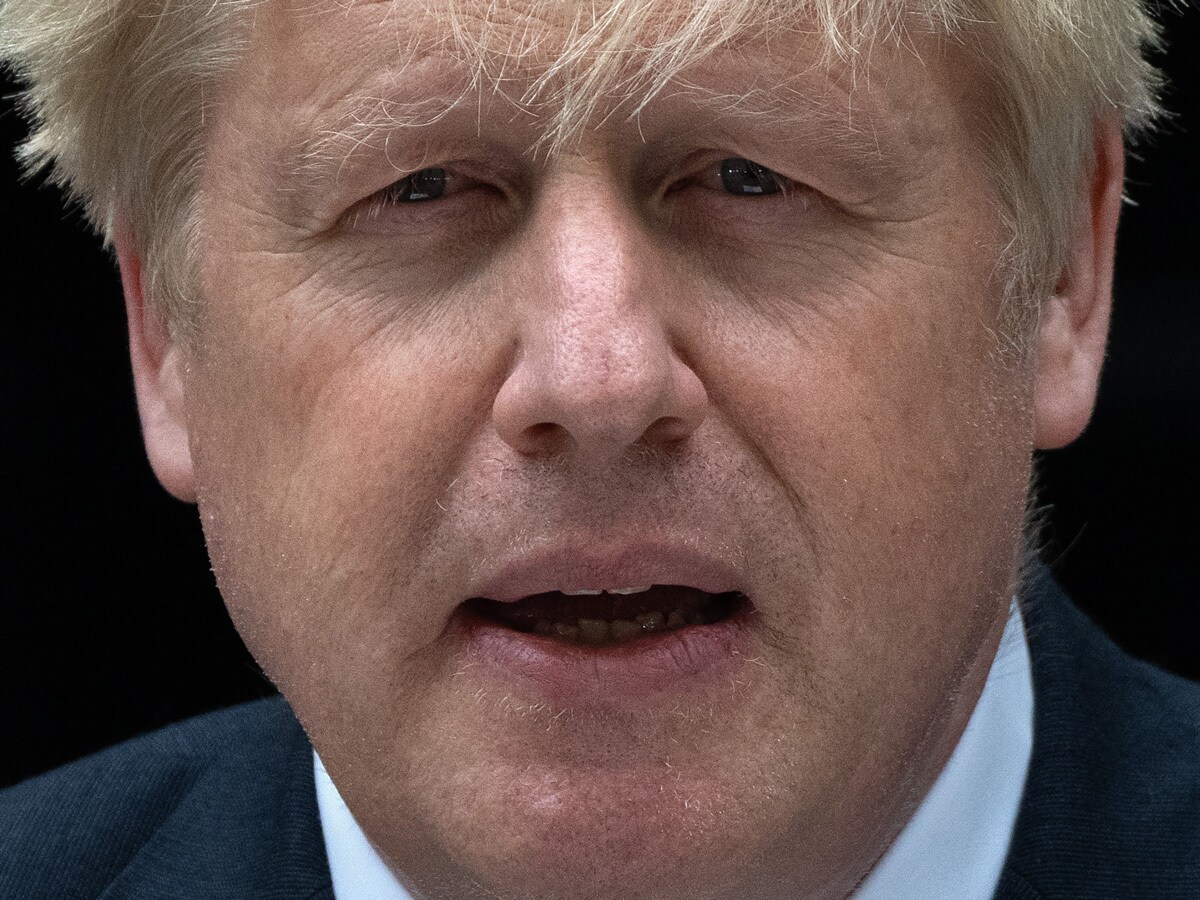Political turbulence and what it means for the FTSE 100 index will be just one of the topics UK investors will be pondering this summer.
The leadership contest to replace Boris Johnson as prime minister won’t be resolved anytime soon. At the same time the nation is feeling the pinch of higher food and energy costs. Not to mention the looming, and unwelcome, prospect of a recession.
This turbulence has played out on foreign exchange markets. In the run up to Johnson finally throwing in the towel, the pound at its lowest level against the dollar for more than two years. News of his resignation promptly led to sterling climbing higher against the dollar.
But what about the FTSE 100 index? Between 4 July and 8 July the FTSE 100 price dropped 0.4%, closing Friday at 7,196.24. Tuesday saw the index close sharply lower as global recession fears weighed on sentiment after Wall Street traders returned to the markets following the July 4 holiday. A bounce then came on Wednesday following the resignation of Rishi Sunak as chancellor, and of Sajid Javid as health secretary.
FTSE 100 stocks to watch this summer
Leadership candidates jostling for position could generate some volatility from time to time. Yet what is likely to move the FTSE 100 index over the summer is wider macroeconomic issues, rather than political intrigue.
UK business confidence was at a 15-month low in June as the cost of living bit hard, according to Lloyds’ [LLOY] business barometer, the worst level since March 2021. Elsewhere, the Bank of England expects inflation to rise to 10% this year, reasoning that both the war in Ukraine and lockdowns in China will make it harder to import goods.
A useful bellwether of the UK economy is Lloyds’ [LLOY] share price. The bank is the country’s biggest mortgage lender and the movement of its stock has reflected major events like Brexit and the pandemic.
Between 4 July and 8 July, Lloyds’ share price was broadly flat, ending the week down a mere 0.5%, although it did open higher the day Johnson would be resigning. But what has really been putting pressure on the stock is recession fears, with Lloyds’ share price down 5.35% over the past three months.
Another measure of the UK economy is its housing market. Persimmon’s [PSN.L] share price dropped as much as 5.7% in trading last Wednesday as the homebuilder reported lower than expected house completions in the first half of the year.
Among those that do well in uncertain times are consumer staple stocks that represent companies that sell products that are always in demand. FTSE 100 mainstay Unilever’s [ULVR] share price is up 8.4% over the past three months as it continues to recover from a selloff earlier in the year. The stock collapsed as the war in the Ukraine broke, forcing it to close operations in the country and stop imports and exports into Russia. With the stock still rebounding, it could be worth further investigation.
Sainsbury’s [SBRY.L] and Tesco [TSCO.L] are also worth keeping tabs on. No matter what happens, people will still need to buy food. Both companies reported strong profits in 2021 - so strong that Sainsbury’s made a whopping £730m underlying profit before tax, up 104% year-on-year. Both Sainsbury’s and Tesco started trending lower mid-May, but have bounced back since the start of July, up 6% and 2.5% respectively.
Where next
A lack of leadership during a prolonged moment of economic crisis is never going to be a good thing. Near-term, this could cause some volatility in the FTSE 100, but after months of speculation over how long Johnson could go on for, there’s now the chance for a degree of stability.
Autumn will see a new resident at 10 Downing Street. They could deliver more fiscal stimulus in the form of tax cuts or take a more conciliatory tone with the EU. Between now and then what happens in Westminster is now likely to be of secondary importance to the prospect of an economic slowdown.
Disclaimer Past performance is not a reliable indicator of future results.
CMC Markets is an execution-only service provider. The material (whether or not it states any opinions) is for general information purposes only, and does not take into account your personal circumstances or objectives. Nothing in this material is (or should be considered to be) financial, investment or other advice on which reliance should be placed. No opinion given in the material constitutes a recommendation by CMC Markets or the author that any particular investment, security, transaction or investment strategy is suitable for any specific person.
The material has not been prepared in accordance with legal requirements designed to promote the independence of investment research. Although we are not specifically prevented from dealing before providing this material, we do not seek to take advantage of the material prior to its dissemination.
CMC Markets does not endorse or offer opinion on the trading strategies used by the author. Their trading strategies do not guarantee any return and CMC Markets shall not be held responsible for any loss that you may incur, either directly or indirectly, arising from any investment based on any information contained herein.
*Tax treatment depends on individual circumstances and can change or may differ in a jurisdiction other than the UK.
Continue reading for FREE
- Includes free newsletter updates, unsubscribe anytime. Privacy policy





